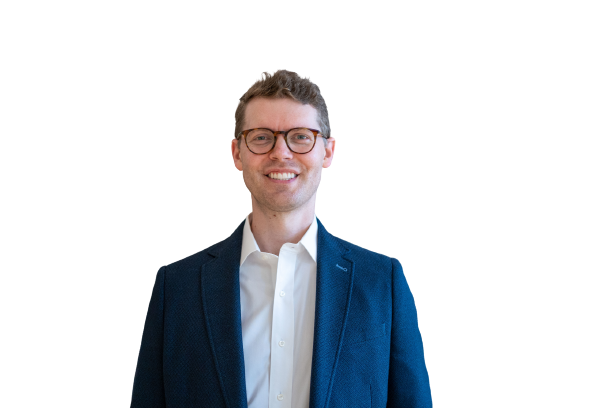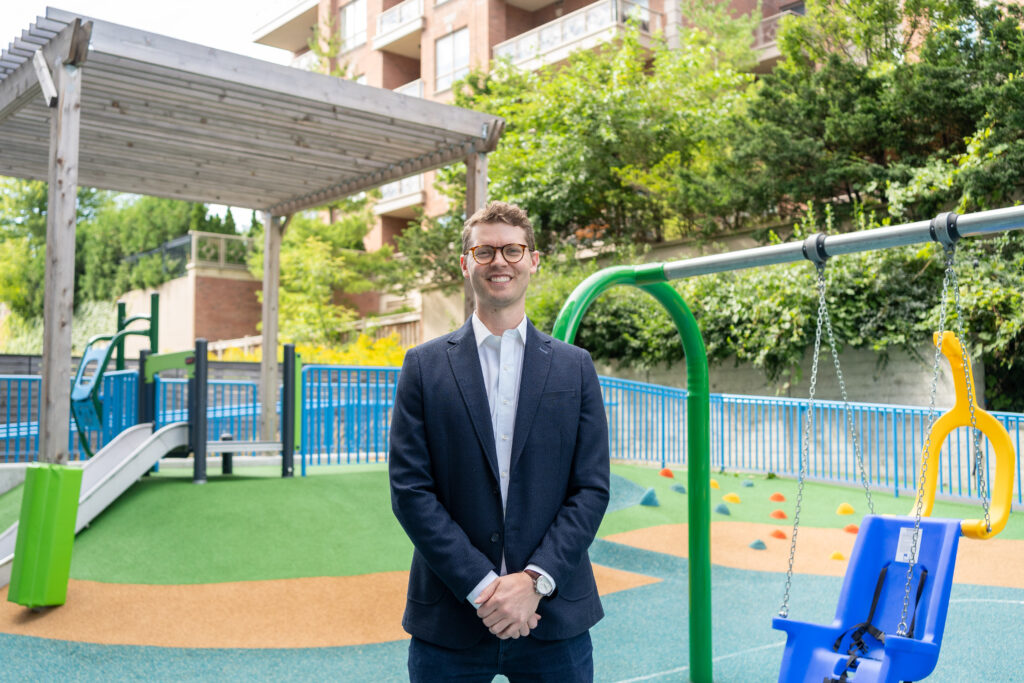Imagine a world where everyone can play

Imagine a playground where everybody is included. Where a kid who uses a wheelchair can play on the swings at the park. Where a child who uses cochlear implants can enjoy a static-free roller slide. Where kids with and without disabilities can easily play together.
Every child should have opportunities to play. And yet, kids and youth with disabilities are often excluded from these experiences.
Dr. Tim Ross is seeking to change that.
Dr. Ross is a scientist, researcher and director of the EPIC Lab at the Bloorview Research Institute. The EPIC Lab explores ableism in our everyday lives. From researching playgrounds and transportation, to housing and health care, the EPIC Lab imagines how we can work together in our communities to create a more accessible and inclusive world.
Dr. Ross explains how accessible and inclusive playgrounds can help us create a world where disability is included.
Why are accessible and inclusive playgrounds important to our communities?
Dr. Ross: Play is so important. No child, parent or caregiver should be excluded from their community playground. It’s an important childhood space. Play experiences offer kids a wide range of benefits for their social, emotional and physical health. Playing with siblings and caregivers can also improve family relations.
Building accessible and inclusive playgrounds can help to create places where all kids interact. Its impacts are far-reaching.

Let’s dig into that more. How can building accessible and inclusive playgrounds help us imagine a world free from ableism?
Dr. Ross: If we can get playgrounds right, we can help to normalize the inclusion of disability among children at an early age. A playground can and should be a place where kids with and without disabilities can interact. Having them interact through play at an early age can be invaluable to future efforts to identify, eliminate and prevent ableism. These experiences could help future generations to expect the presence of disability and question ableism in all spaces. For example, public transit, workplaces, restaurants, sports events and healthcare settings. Creating opportunities for kids with and without disabilities to play together normalizes disability inclusion early on and can help to set us up for re-imagining a non-ableist future.
Tell us about the accessible playgrounds playbook.
Dr. Ross: With support from Canadian Tire Jumpstart and in collaboration with Kelly Arbour-Nicitopoulos, Ingrid Kanics, and Jennifer Leo, the EPIC Lab recently created a report called, “Creating Inclusive Playgrounds: A Playbook of Considerations and Strategies.” We found that there was a need for a resource that would help with creating inclusive playgrounds from start to finish. I’m talking about community engagement, site selection and funding, to the design of the playground itself and its surroundings, to programming and even services and maintenance.
Now that the playbook is out, what needs to happen next?
Dr. Ross: As a society, we’re dealing with profoundly normalized ableism. We need to identify and address ableist aspects of planning and design practices and processes. We need to re-imagine alternatives to how we’re doing things. Planners, urban designers, architects, service providers and system designers all need to examine how their everyday work may be contributing to ableism.
I urge people to take a critical look at their own local playground as a starting point. Is the surface accessible? Does the equipment facilitate different types of play? Are there accessible parking spaces, pathways, and facilities and amenities? Can people with disabilities get to the playground and stay there for as long as they’d like? We must do more to understand and address the experiences, needs, and preferences of people living with disability in our initial plans and designs.
Ultimately, why do we need to create inclusive and accessible play spaces?
Dr. Ross: Our communities need to benefit from the presence and diversity of those living with disability. We must stop excluding some kids from play opportunities on the basis of disability. All kids should have opportunities to play within their communities. Everyone deserves to have fun.
